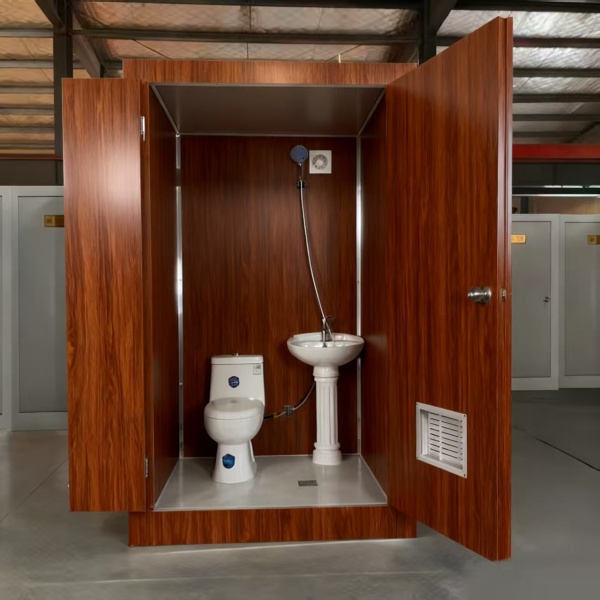-
E-mail
Austin120521@outlook.com -
E-mail
sales@jujiuhouse.com -
Telephone
+86-17864099991 -
Telephone
+86-17854044442
- Chinese
- French
- German
- Portuguese
- Spanish
- Russian
- Japanese
- Korean
- Arabic
- Irish
- Greek
- Turkish
- Italian
- Danish
- Romanian
- Indonesian
- Czech
- Afrikaans
- Swedish
- Polish
- Basque
- Catalan
- Esperanto
- Hindi
- Lao
- Albanian
- Amharic
- Armenian
- Azerbaijani
- Belarusian
- Bengali
- Bosnian
- Bulgarian
- Cebuano
- Chichewa
- Corsican
- Croatian
- Dutch
- Estonian
- Filipino
- Finnish
- Frisian
- Galician
- Georgian
- Gujarati
- Haitian
- Hausa
- Hawaiian
- Hebrew
- Hmong
- Hungarian
- Icelandic
- Igbo
- Javanese
- Kannada
- Kazakh
- Khmer
- Kurdish
- Kyrgyz
- Latin
- Latvian
- Lithuanian
- Luxembou..
- Macedonian
- Malagasy
- Malay
- Malayalam
- Maltese
- Maori
- Marathi
- Mongolian
- Burmese
- Nepali
- Norwegian
- Pashto
- Persian
- Punjabi
- Serbian
- Sesotho
- Sinhala
- Slovak
- Slovenian
- Somali
- Samoan
- Scots Gaelic
- Shona
- Sindhi
- Sundanese
- Swahili
- Tajik
- Tamil
- Telugu
- Thai
- Ukrainian
- Urdu
- Uzbek
- Vietnamese
- Welsh
- Xhosa
- Yiddish
- Yoruba
- Zulu
- Kinyarwanda
- Tatar
- Oriya
- Turkmen
- Uyghur

China space capsule hotel
Exploring the Allure of China’s Space Capsule Hotels
China’s space capsule hotels aren't just about compact living; they reflect a shift in travel culture, a fascination with futuristic living, and the pursuit of cost-effective urban solutions. The transformation from the mundane to the extraordinary often involves a blend of advanced design and pragmatic execution, a field where Shandong Jujiu Integrated Housing Co., Ltd. excels.
Understanding the Space Capsule Concept
The idea of a space capsule hotel plays into the fantasy of astronaut living—minimalist yet efficient. At first glance, many might confuse these accommodations with plain, budget lodging. However, there's an underlying complexity in their design, a crucial part of what companies like Shandong Jujiu tackle by blending aesthetics with functionality. These capsules are engineered to maximize space usage, with advanced features compacted into a small area.
During my visits to several such hotels across China, I discovered that their design is not solely for cost-saving but also for enhancing user experience. The seamless integration of tech amenities, like automated lighting and climate control, showcases what's possible when functionality meets cutting-edge design. Shandong Jujiu's approach to integrated housing solutions, often seen in their movable board rooms and light steel structures, embodies the same principles that can be adapted to these futuristic accommodations.
Implementing these designs requires an understanding of both local demands and global trends. As someone who's sat in planning meetings contemplating these grand ideas, I know that successful execution depends on understanding the minute details—airflow, lighting, soundproofing—all crucial aspects when crafting these small yet intimate spaces.
Market Demand and Cultural Appeal
One could ask, what drives the success of such unconventional hotels in China? The answer often lies in urban density and cultural shifts. In cities like Beijing and Shanghai, where space is a luxury, these hotels offer a viable solution. Moreover, the youth, enamored with tech and innovation, find them refreshingly different and intriguing.
Additionally, after chatting with several travelers during my stays, it’s evident that the appeal isn't just the novelty. Many see China’s space capsule hotels as an experiential escape—an opportunity to live imaginatively, albeit briefly. This perception shift from merely a place to stay to an ‘experience’ is something Shandong Jujiu might well integrate into their design ethos, encouraging users to engage with the space in novel ways.
The adaptability of these capsules also resonates with another aspect: sustainability. Utilizing minimal resources for construction and operations, they align with global trends towards eco-friendly living. It's an area where expertise from companies known for their efficient modular structures, like Shandong Jujiu, becomes invaluable in optimizing resource usage.
Challenges and Practical Considerations
However, the implementation isn't without its hurdles. Designing for localized tastes while maintaining universality requires meticulous planning. Air quality management, especially in compact environments, presents ongoing challenges. I've experienced firsthand the battle of maintaining comfort without compromising on aesthetic minimalism—a line that's painfully thin at times.
Regulatory compliance and safety standards further complicate the process. Every material and design choice must meet stringent safety requirements, a domain where adeptness in steel structure engineering and curtain wall projects gained by Shandong Jujiu comes into play. Their rigorous testing and compliance checks are essential in ensuring these habitats are not only futuristic but also safe.
Another seemingly trivial yet critical challenge is user comfort. Imagine optimizing a space not just for sleeping but for leisure and work—tasks that demand agility in design thinking. Addressing these complex needs requires ingenuity and foresight, something that companies deeply rooted in innovative housing solutions are well-equipped to manage.
The Role of Advanced Materials
Advanced materials are changing the game for space capsule hotels. The integration of light steel structures, a forte of companies like Shandong Jujiu, offers the dual benefits of durability and flexibility. These materials contribute not only to the integrity of the capsule but also to the overall user experience, providing a stable yet adaptable environment.
The use of sustainable materials is where this industry can shine. During a construction project back in 2022, I observed the application of advanced composites in load-bearing elements—a practice that ensured strength without the weight penalty commonly associated with traditional materials. This innovative approach is vital in maintaining the structural soundness of compact spaces while adhering to eco-friendly practices.
Navigating through limitation constraints, the importance of expertise in material science cannot be overstated. It bridges the gap between ambitious designs and practical application—a truth well testified by the hands-on experiences of suppliers like Shandong Jujiu. Their extensive work in packaging box rooms and building enclosures provides them unparalleled insights into modular construction, directly applicable to the development of these compact hotels.
Future Directions and Innovations
Looking forward, the landscape for space capsule hotels in China appears boundless. The ongoing exploration into AI-driven solutions, automating everything from check-ins to environmental controls, presents new directions. Here, expertise in R&D and installation from leaders like Shandong Jujiu could revolutionize how travelers interact with these spaces, making them more intuitive and user-friendly.
Incorporating personalized environments within each capsule—tailored climate settings, lighting preferences, and adaptive furniture—is no longer a distant dream. Such advancements require not just technological prowess but also a fresh mindset toward human-centric design, allowing personalized experiences in a shared space, a paradox that capsule hotels remarkably solve.
Ultimately, these innovations reflect broader societal shifts towards efficiency, compact living, and immersive experiences. The potential for growth and discovery in this realm is vast, and with firms like Shandong Jujiu at the forefront, the line between envisioning and experiencing the future continues to blur, transforming what we know about travel and accommodation.
Related products
Related products
Best selling products
Best selling products-
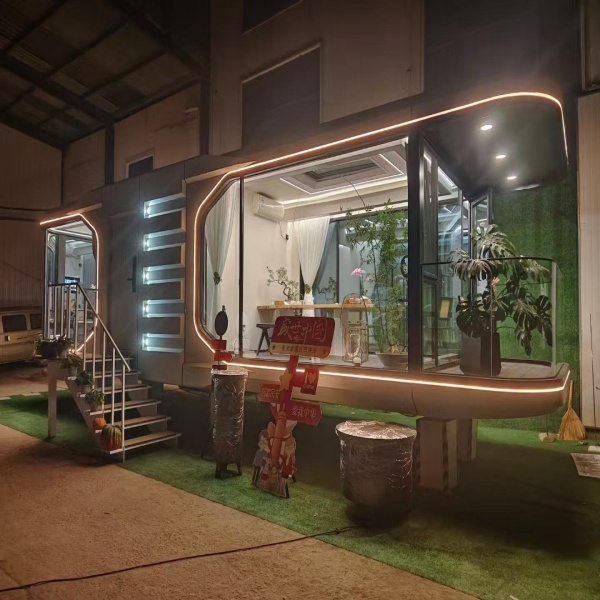 Outdoor ecological capsule rooms, luxury pods, space capsule hotel rooms, prefabricated space capsules, container houses
Outdoor ecological capsule rooms, luxury pods, space capsule hotel rooms, prefabricated space capsules, container houses -
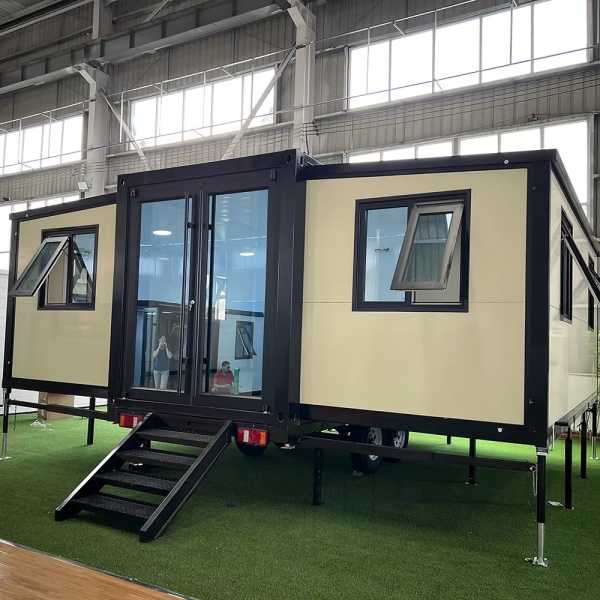 Stair Access Double Wing Expandable Container House | Easy Installation Mobile Office
Stair Access Double Wing Expandable Container House | Easy Installation Mobile Office -
 Customized Expandable Container House Holiday Home Folding Prefab Container House with Bathroom and Kitchen
Customized Expandable Container House Holiday Home Folding Prefab Container House with Bathroom and Kitchen -
 Dual-Wing Folding Container House: Fast Assembly, Space-Saving & Multi-Scene Adaptable
Dual-Wing Folding Container House: Fast Assembly, Space-Saving & Multi-Scene Adaptable -
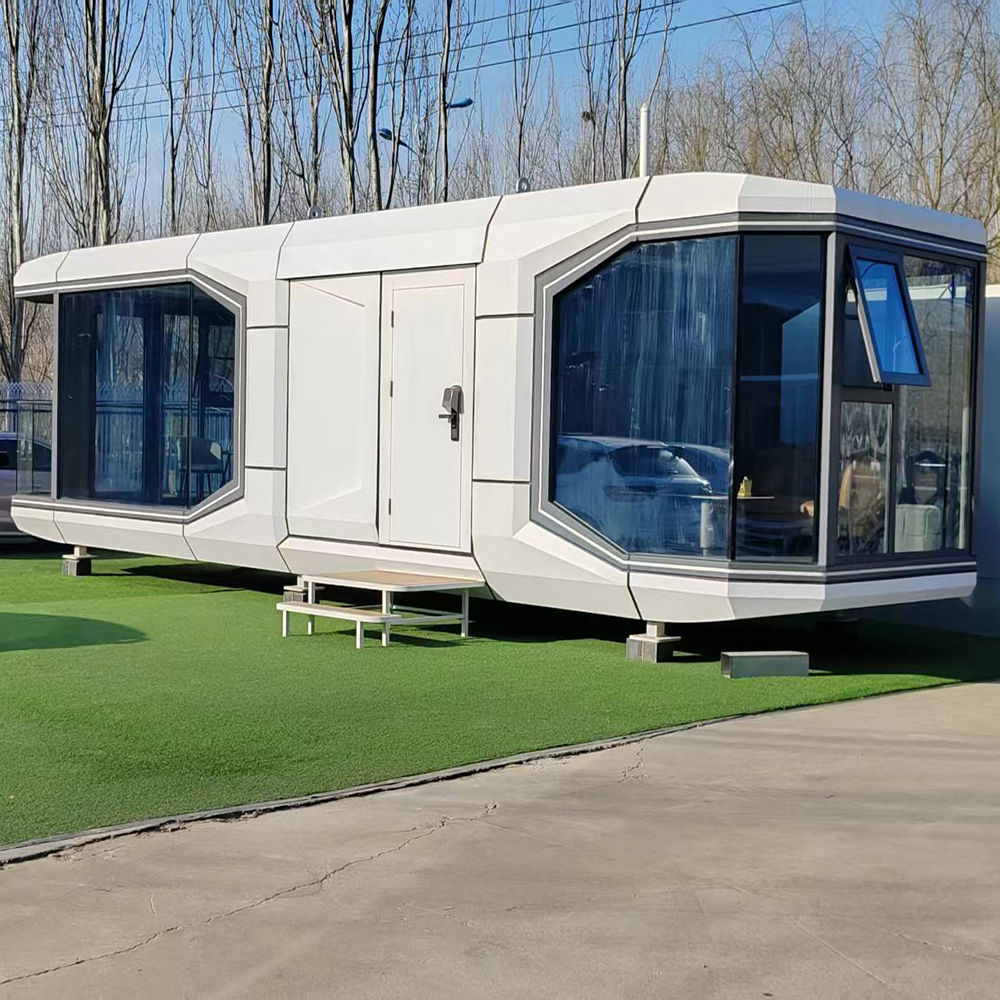 Luxury High Quality 2 Bedroom Container Home Prefabricated Steel Space Capsule for Office Shop Hotel or Outdoor House
Luxury High Quality 2 Bedroom Container Home Prefabricated Steel Space Capsule for Office Shop Hotel or Outdoor House -
 Hot-selling foldable container houses, expandable prefabricated houses, suitable for office or living use, with fast delivery.
Hot-selling foldable container houses, expandable prefabricated houses, suitable for office or living use, with fast delivery. -
 Customized Two Wing Folding Expandable Container House
Customized Two Wing Folding Expandable Container House -
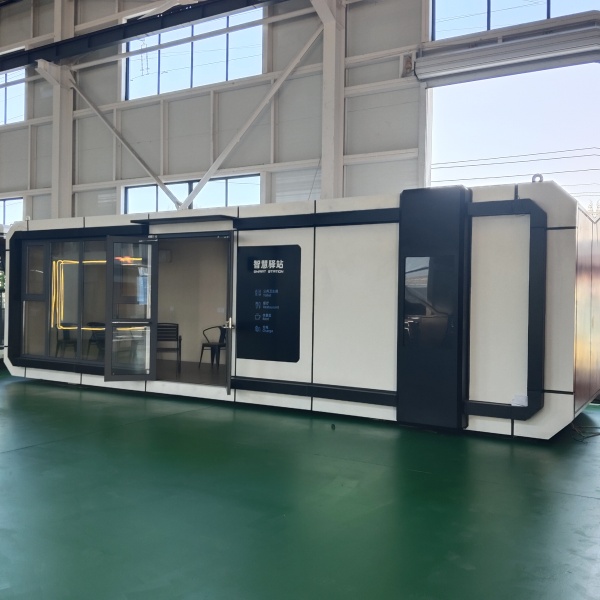 Modular modern movable apple cabins, customized high-end folk houses and portable bedrooms, delivered as a whole
Modular modern movable apple cabins, customized high-end folk houses and portable bedrooms, delivered as a whole -
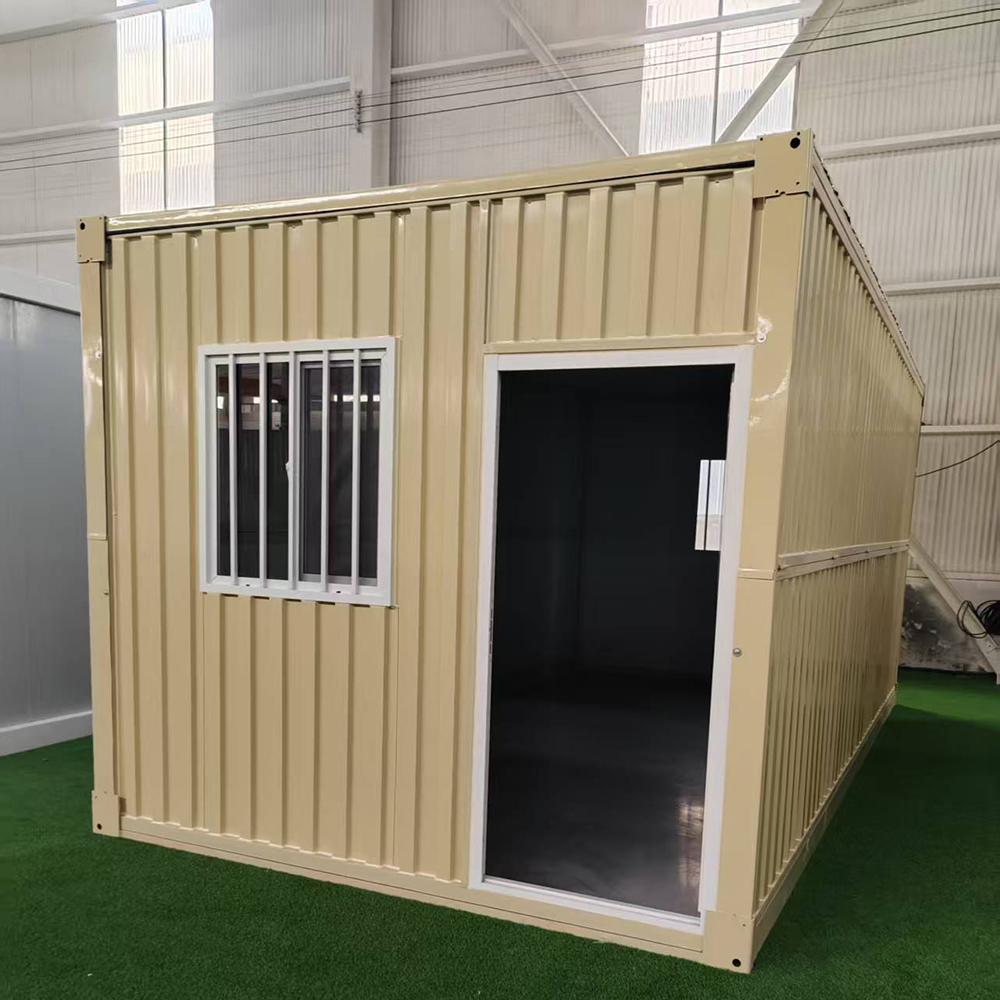 Competitive Price Portable Container House Foldable Container Mobile Living Modular Homes
Competitive Price Portable Container House Foldable Container Mobile Living Modular Homes -
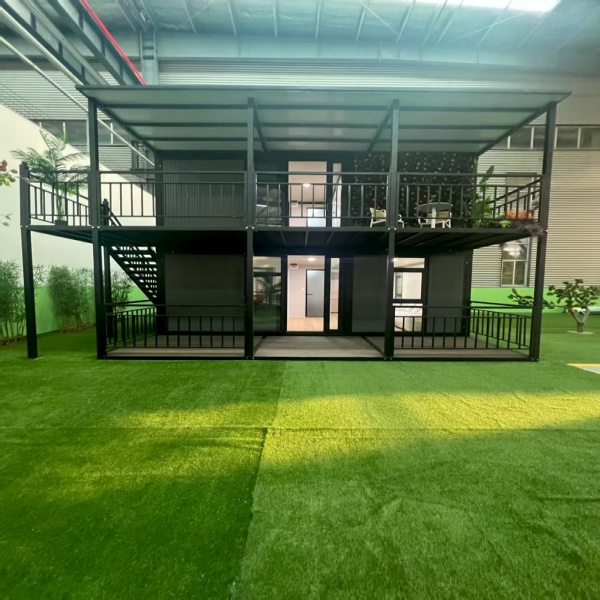 Luxury foldable two-story container houses in luxury resort hotels and villa hotels
Luxury foldable two-story container houses in luxury resort hotels and villa hotels -
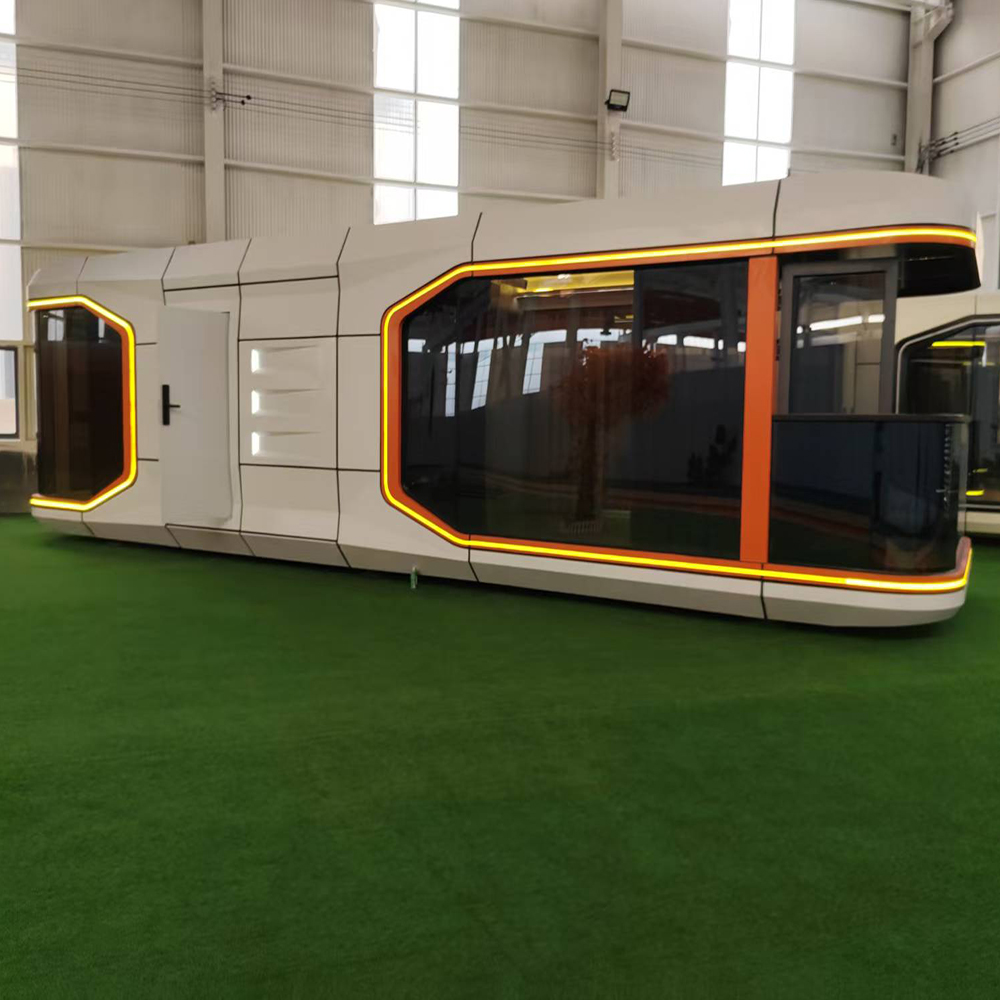 Standard Modern Camping Pod Space Prefabricated Portable Mobile Capsule Room Hotel Bathroom Prefabricated Spaceship House
Standard Modern Camping Pod Space Prefabricated Portable Mobile Capsule Room Hotel Bathroom Prefabricated Spaceship House -
 Reasonable Price 1 Bedroom Modular Container House Folding Container Home for Villa or Apartment Use
Reasonable Price 1 Bedroom Modular Container House Folding Container Home for Villa or Apartment Use
Related search
Related search- space capsule house
- China homes that fold out
- prefabricated expandable container house
- China prefabricated containers house 20ft
- portable prefabricated expandable container house
- Buy apple cabin tiny home
- prefab container house for sale
- Buy economical prefabricated modular mobile portable container house
- China expandable shipping container house
- China fold out tiny house










